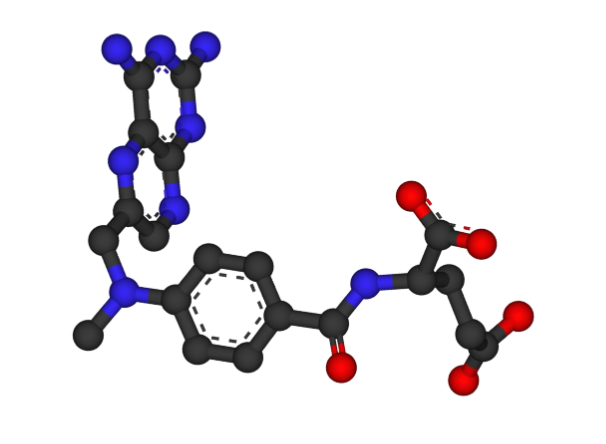Playlist
Show Playlist
Hide Playlist
Further Rheum Labs
-
Rheumatology I 03 Connective Tissue Diseases.pdf
-
Download Lecture Overview
00:01 Other labs that you wanna pay attention to in connective tissue disease. 00:04 Rheumatoid factor could be seen in RA, maybe Hepatitis C. 00:08 What is rheumatoid factor? Here we go. 00:12 What happens with rheumatoid factor, is it the IgM is then going to target the Fc portion of the IgG. 00:22 Once again I repeat, the IgM is going to then target the Fc portion or region of the IgG. 00:28 That is the definition of rheumatoid factor. 00:30 And you find rheumatoid factor then its, should be thinking rheumatoid arthritis. 00:34 Remember we talked about a whole sleuth of seronegative spondyloarthropathies, remember? And there we talk about psoriatic arthritis. 00:44 We talked about ankylosing spondylitis, and inflammatory bowel diseases. Psoriatic arthritis. 00:48 And those seronegative, what is that mean? RF negative. 00:52 These are RF positive, extremely important and much more specific for rheumatoid arthritis, is this and please know this well, it's called cyclic citrullinated peptide, CCP. 01:05 Once again, cyclic citrullinated peptide, it is an arginine derivative. 01:11 There is another one called vimentin, but I'll leave that alone. 01:15 The big one here is CCP. Note well for rheumatoid arthritis, quite specific. 01:19 Now, c-reactive protein is extremely non-specific. 01:23 Any type of inflammatory process, right? For example, fever, inflammation, even coronary arterial disease, will result in c-reactive protein to be elevated. 01:33 What is it? It is an acute phase reactant. 01:36 All acute phase reactants are being synthesize from where? The liver, good. 01:42 Do you remember the name of the Interleukin that we discussed? Interleukin 6. Put that in mind. 01:48 So this obviously is going to be completely dependent on the level of inflammation, what is, c-reactive protein. 01:56 We will take a look at erythrocyte sedimentation rate, think of doing a centrifuge on RBC, and what are they doing? They're coming together, sedimentation. 02:05 The higher the number is higher level of acute phase reactants, for example fibrinogen. 02:11 When I told you acute phase reactants are being synthesize from where please? The liver. 02:16 Now, what about these acute phase reactants, what do they do? The repulsive forces such as me -- no, I'm joking. 02:26 The repulsive forces when they decrease between RBCs, guess what they wanna do? They wanna come together and stack up on top of each other, and you wanna go gambling. No, you don’t, not really. 02:37 Not in this state, but you form rouleaux formation, that's rouleaux formation. 02:41 More number of acute phase reactant, you lose the forces repelling your RBCs. 02:47 Now obviously, rouleaux formation is extremely non-specific. 02:51 You can find rouleaux formation with multiple myeloma, you can find it with Waldenstrom's, macroglobulinemia. 02:56 Now, about that ESR, you can have a false elevation when there's severe anemia, or you can have a false decrease in -- now, let me give you the common theme, you can have a false decrease in ESR. 03:10 In the pathology in which the protein is either not being synthesize, give me the disease there. 03:17 Organ, liver disease or excessive loss. Give me a kidney issue there, nephrotic syndrome. 03:25 Or you're not absorbing the protein. For example you've heard of the Ménétrier's Disease, Ménétrier's, too much mucus in your stomach, increase of the pH, cannot cleave off the ogen off of pepsinogen, resulting in protein-losing enteropathy. 03:46 Whenever you have a condition in which you're not able to properly supply enough protein to the body in the serum, you're gonna have a false decrease in your erythrocyte sedimentation rate.
About the Lecture
The lecture Further Rheum Labs by Carlo Raj, MD is from the course Connective Tissue Diseases. It contains the following chapters:
- Further Rheum Labs in Connected Tissue Diesease
- Erythrocyte Sedimentation Rate
Included Quiz Questions
Acute phase reactants are mainly synthesized by which of the following organs?
- Liver
- Kidney
- Brain
- Thyroid
- Lungs
What serum marker is most specific for rheumatoid arthritis?
- Anti-cyclic citrullinated peptide (CCP)
- Anti-double stranded DNA
- Anti-Ro/SSA antibodies
- Anti-La/SSB antibodies
- Anti-Smith antibody
Customer reviews
5,0 of 5 stars
| 5 Stars |
|
5 |
| 4 Stars |
|
0 |
| 3 Stars |
|
0 |
| 2 Stars |
|
0 |
| 1 Star |
|
0 |





